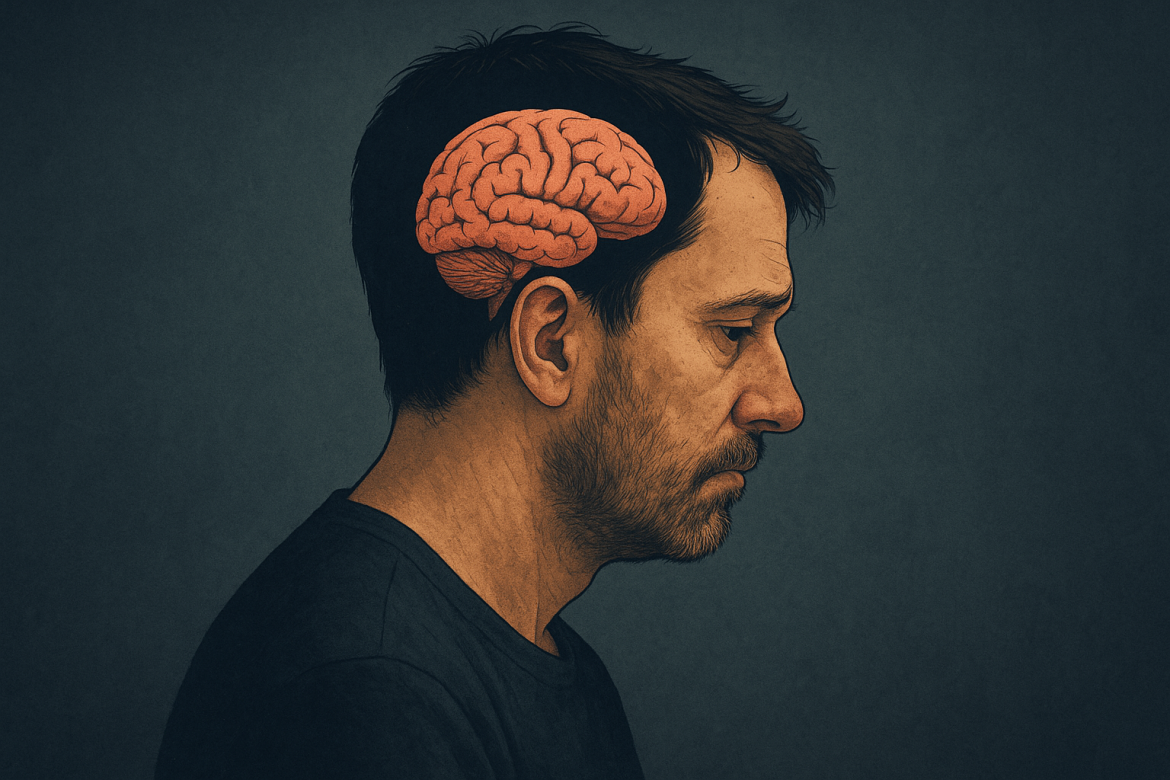Five Things We Will Learn
- How forced isolation impacts both mental and physical health over time.
- Why the frontal lobes of the brain shrink under long-term social deprivation.
- The spiritual and biological consequences of prolonged loneliness.
- The connection between isolation and depression—including the neurological feedback loop it creates.
- Why God designed us for connection—and how relationships help preserve brain health and spiritual vitality.
When Isolation Goes Too Far
Everyone needs time to themselves, and peaceful solitude can offer real, stress-relieving benefits. But when isolation sneaks in unexpectedly—or worse, is forced—it can do lasting damage. This isn’t just about loneliness. It’s about what happens when we’re confined without meaningful contact or purpose for extended periods.
Whether it’s days, weeks, or even years, people undergoing such isolation can experience dramatic and harmful shifts in mind and body. Let’s break down why that happens—and what it means.
The Mental and Emotional Toll of Isolation
Early on, isolation can trigger a spike in stress hormones. If sustained, this stress can become chronic. One reason is the loss of “social reality testing”—a psychological term that describes how we use relationships as a mirror to keep our thoughts, emotions, and identity grounded.
Without these mirrors, thoughts spiral. Impulses go unchecked. Identity erodes. This opens the door to depression, obsessive thinking, suicidal ideation, delusions, or even hallucinations.
Neurologically, the limbic system (responsible for fear and stress) becomes overstimulated, while the prefrontal cortex (responsible for logic and self-control) begins to shrink. Over time, people shift from rational to reactive, becoming more anxious, aggressive, and irrational.
Related:
- What happens to your brain without any social contact? – Terry Kupers
- Dynamics of Shepherds and Sheep, Finding Safety in our Good Shepherd’s Care
- FIRST LOVE! I Know The Good You’ve Done, But You Have Fallen
- Rejoice Always: Learning the secret of being content in any and every situation
- Returning to First Principles: Restoring Family, Church, and Spiritual Power
Physical Health Consequences
Isolation doesn’t just damage the mind—it hurts the body too. People may lose their sense of time, struggle to sleep, and experience symptoms like dizziness, heart palpitations, or headaches. Weight loss is also common due to stress-related digestion issues and poor appetite.
While some may attempt to establish routines like exercising or journaling, these strategies, though helpful, can only go so far when meaningful human interaction is missing.
The Frontal Lobes: What You Lose in Isolation
That phrase—“I feel like I’m losing my mind”—isn’t just an expression. It’s grounded in biology.
The frontal lobes are responsible for planning, impulse control, social behavior, movement, speech, focus, and emotional regulation. When these areas shrink—whether through injury, neglect, or extreme isolation—a person may lose their ability to think clearly, manage emotions, or relate socially.
People truly are losing parts of their mind when they remain in isolation, not as shame, but as sobering reality. These lobes help us know who we are, remain grounded in truth, and fulfill our God-given callings.
Designed for Connection: God’s Blueprint
The awkwardness, tension, and vulnerability that often come with relationships aren’t flaws—they’re features. Relational tension sharpens us. Being with others helps preserve mental clarity, stabilizes emotions, and even protects us from cognitive decline.
From a spiritual standpoint, isolation is contrary to God’s design. We were never made to live apart—from Him or from one another. The community is where we grow, are refined, and are made whole.
Even in discomfort, connection brings life.
The Link Between Isolation and Depression
Isolation and depression form a dangerous loop. One leads to the other, and back again.
How It Starts:
- Forced or prolonged separation cuts us off from social rewards (like laughter, conversation, support).
- Stress hormones rise, and the brain’s “feel-good” chemicals (like dopamine and serotonin) drop.
- Without affirmation and interaction, self-worth begins to deteriorate.
How It Deepens:
- As depression sets in, people withdraw further.
- They may avoid others, believing they’re a burden, or lose interest in life altogether.
- This deepens the depression, reinforcing the loop:
Isolation → Depression → More Isolation → Worse Depression
What Happens in the Brain
Neuroscience shows that:
- The hippocampus (memory and learning) and prefrontal cortex shrink.
- The amygdala (fear and emotion) becomes hyperactive.
- The default mode network (rumination and negative thinking) goes into overdrive.
These brain shifts make people more vulnerable to hopelessness, irrationality, and even suicidal thoughts.
Conclusion: Connection Is Life
“For God has not given us a spirit of fear, but of power and of love and of a sound mind.” 2 Timothy 1:7 (NKJV)
The science is clear. The theology is stronger. We were made for connection. Isolation—especially long-term and involuntary—damages the brain, the body, and the spirit. God’s design calls us into relationships, not out of them. Even when it’s uncomfortable, even when it stretches us, being with others is one of the most vital things we can do to stay healthy—mentally, emotionally, and spiritually.




